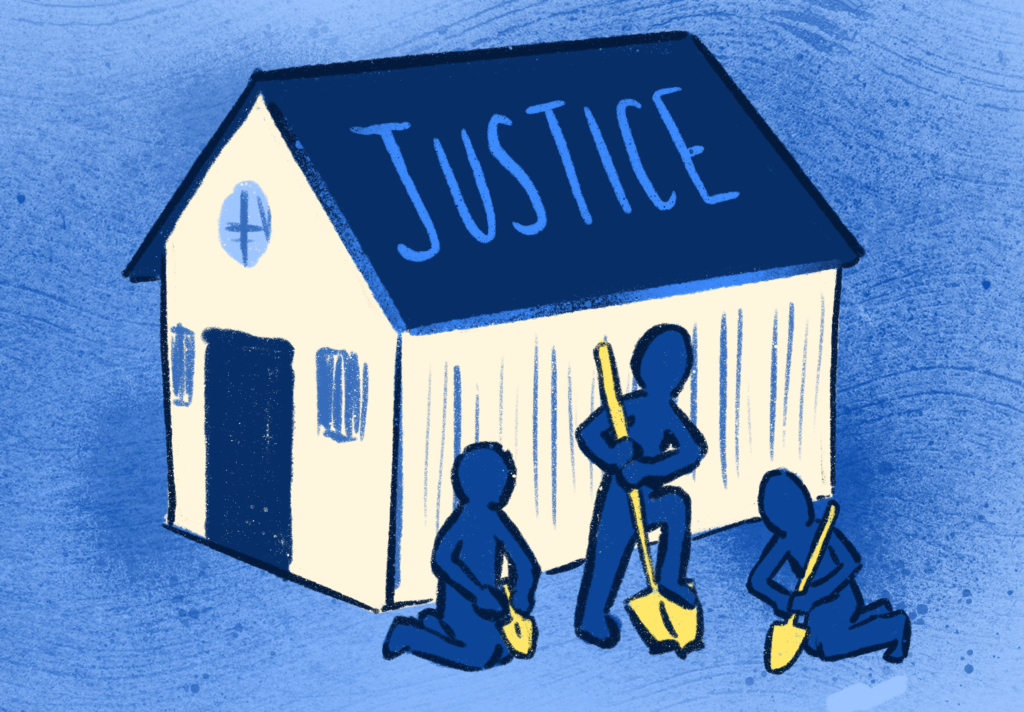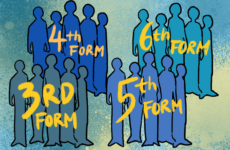
Graphic by Evelyn Kim ’27/The Choate News
By Maia Shan ’27 Opinions Writer
As I looked around School Meeting on September 23, I saw many students napping, listening to music, and showing indignation towards the endless list of announcements. However, the energy in the room shifted as Director of Community Service Ms. Melissa Koomson made an unanticipated announcement: following Community Service Day on September 28, all participating students would be eligible to receive two credit hours counted towards the annual requirement of ten community service hours. Suddenly, everyone was awake. In light of this change, members of the community must reflect further on the purpose of community service as an act in the spirit of kindness, not compensation.
Like many others, I immediately filled out a reflection to receive my two hours of credit after Community Service Day. However, despite my initial enthusiasm, I can’t help but feel that the introduction of credit detracts from the spirit of Community Service Day.
The goal of the change, according to Ms. Koomson, was “to provide more opportunity for students to engage with Service BOARd and also to provide an opportunity for folks to get a jumpstart or, in some cases, catch up on what they haven’t done.” Community service, she added, becomes burdensome when students approach it with a negative attitude. By offering an incentive, Ms. Koomson hopes that students will approach serving their community with a more positive mindset. However, we must still consider the implications of this change.
For Community Service Day, my advisory visited Davenport-Dunbar, a residence for elderly individuals. The residents seemed delighted to welcome us to their home, and I could tell they genuinely enjoyed the trivia and bingo we played together. As I wrote my reflection on the day’s events, one conversation stuck with me. A resident asked, “Do you students get credit for being here?” The question made me pause, and I hesitated to admit that, yes, we would be compensated for our time.
I struggled to answer the resident because I felt guilty: introducing compensation for a day devoted to helping others seems counterintuitive, especially at a school with such privilege. There is a clear distinction between students completing individual projects and the entire community coming together in the spirit of service. Offering credit can come in the way of understanding this. I don’t think we should be ashamed for celebrating this recent introduction, or even taking credit for our time, but I do urge us to reconsider the reasoning behind this “blessing.”




